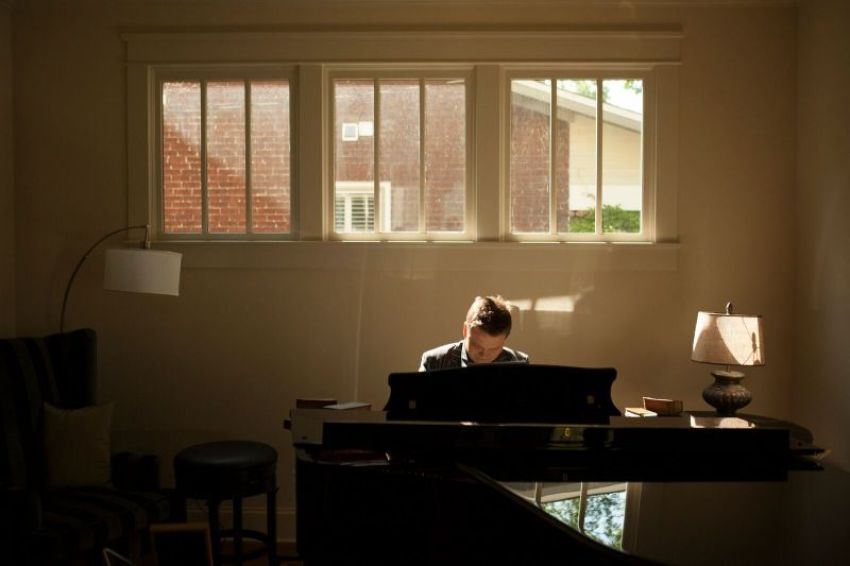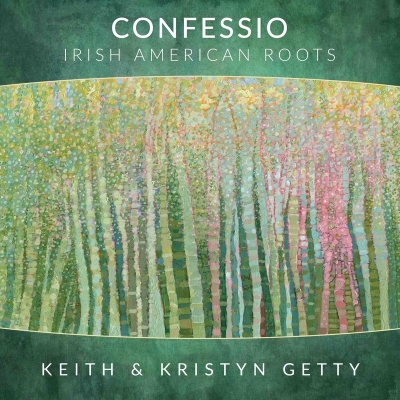Keith Getty on dangers of modern worship, tells pastors: 'Love your people enough to care about what they sing'

At a time when deconstructing one’s faith almost seems trendy, hymn writer Keith Getty is emphasizing the important role theologically sound, biblically-grounded hymns play in strengthening the next generation of believers.
In an interview with The Christian Post, the “In Christ Alone” writer lamented a movement he’s seen permeate churches of all denominations, sizes and demographics across the United States in recent years.
“The pastor goes, ‘I preach the Word. Everybody else do the rest, and I'll just concentrate on the sermon.’ Well, that's, that's stupidity. That's not how the Bible was written. That's not how the Church fathers behaved,” Getty said.
Everyone from the great reformers like Martin Luther and John Calvin to revivalists including Jonathan Edwards and Dwight Moody understood that, “Yes, you preach the Word, but what your congregation sings and the shape of your services, from the prayers to the Bible readings, is crucially important," he continued.
“We have to be able to do that,” Getty stressed. “What if we don't do that? What will happen is, we've got a generation of children going to churches that are imaginative and lively and fill their imaginations but are shallow. Or else, we get people going to churches that are full of truth, but they're so boring and so loveless and joyless, that there's none of the attractiveness of Christianity to draw people. The first thing that actually attracts their imagination will draw them away."
He added, "There's a huge danger with it. I would say to any pastor or teacher out there — love your people enough to care about what they sing.”
Keith Getty and his wife, Kristyn, are behind some of today’s most beloved hymns, including “He Will Hold Me Fast,” “Christ Our Hope in Life and Death” and “The Power of the Cross.” The Irish-born duo’s organization, Getty Music, includes a publishing company of modern hymn writers, a record label, touring company and an online learning company.
Through their platform, Getty said he and his wife seek to write “great modern hymns that would transform the world for Christ” and strengthen and transform children while championing others to do so as well.
The father of four daughters, ages 10, 7, 6 and 3, Getty feels strongly about instilling Scripture through song in children at a young age. Thanks in part to the rise of social media, the challenges facing children today are “unprecedented,” he stressed, and thus, parents can “get away with less.”
“I think we have to make sure that our children know the Scriptures better than they know us, better than even they know their own careers,” he said. “I think they have to be more passionate and be more creative and imaginative in love for the Lord than their love for Disney. If we do not put songs that so fill their emotions with the Lord, then ‘Frozen’ will take those songs, and ‘Frozen’ is anti-Christian. They're great songs … but they're not Christian.”
He added: “We have to, as families, I think, work harder at keeping the unity in our families and logically keep the unity in our churches. People keep talking about … there's so much breakdown and … split and anarchy in the Church, but of course. Look at the culture around you. What do you expect? Look at social media … that’s going to happen. We shouldn't be surprised at that. But we've got to work harder. We’ve got to pray … and we’ve got to make sure that our families are more biblical than ever before.”
The Getty’s latest album,Confessio – Irish American Roots, contains songs filled with traditional Irish melodies, new songs and timeless hymns. Getty described the album’s lead track, “Pass The Promise,” as having a “lovely kind of almost Appalachian simplicity to it.”
The album also features guest artists including Alison Krauss (“In Christ Alone”), Sandra McCracken (“All My Heart Rejoices” “Pass The Promise”), Kirk Whalum and Dana Masters (“Amazing Grace”).
Confessio, Getty said, was inspired by the hymn writers of old: “We went back to Ireland and we thought about all the 17 centuries of Christianity since St. Patrick brought Christianity to Ireland. … Of course, St. Patrick was a hymn writer himself. … We thought about 17 centuries of Christianity in Ireland, and we thought about all the faithful pastors and farmers and tradesman and teachers who had faithfully passed on the faith for generations. Kristyn and I were just overwhelmed.”

He added, “We want to be part of that legacy. We want to, in our lives and in our witness and in the hymns that we sing, pass on songs to our children that they can carry with them through their life.”
Commenting on the modern worship movement, Getty said he’s concerned by the number of pastors, parents and teachers who blindly accept much of the theologically shallow music released today.
“At the end of the day, modern worship, call it what you want, it's largely an industry run by Wall Street,” he said. “None of us should be acting like this is some great Christian resource that we should take blindly. How many things in the history of the world has Wall Street made more godly? These songs are oftentimes written by people who you wouldn't trust to be your kids' Sunday school teachers. Some of these people are great, but a lot of them aren't. And we've got to be wiser. We've got to own up to the responsibilities in our lives, the short life we have, and give our kids the things that are beautiful.”
The artist clarified that he’s not condemning the modern worship movement as a whole, stressing there are “wonderful” people who write and release beautiful music. But overall, he said, modern worship music “shouldn’t be trusted” in the same way the Bible or the hymns of old should be.
The Psalms, for example, deal with many of the issues facing people today, from doubt to lament.
“So many of the questions, so much of this deconstruction we're seeing online from people, are people who either never understood the Gospel in the first place or people who never understood the benefit of the Psalms,” he explained.
“If they read the Psalms, most of their issues — the Psalmists are having these issues thousands of years ago. This is not some new thing that's happened because we have the internet or because we have artificial intelligence. These are things that are as old as the Psalms.”
What we sing, Getty said, “profoundly shapes” and affects us, adding: “We’re concerned the next generation are not singing enough of the hymns that they will carry for life. And they have such an amazing influence in our lives ... that's really the calling of our lives.”
Leah M. Klett is a reporter for The Christian Post. She can be reached at: leah.klett@christianpost.com



























